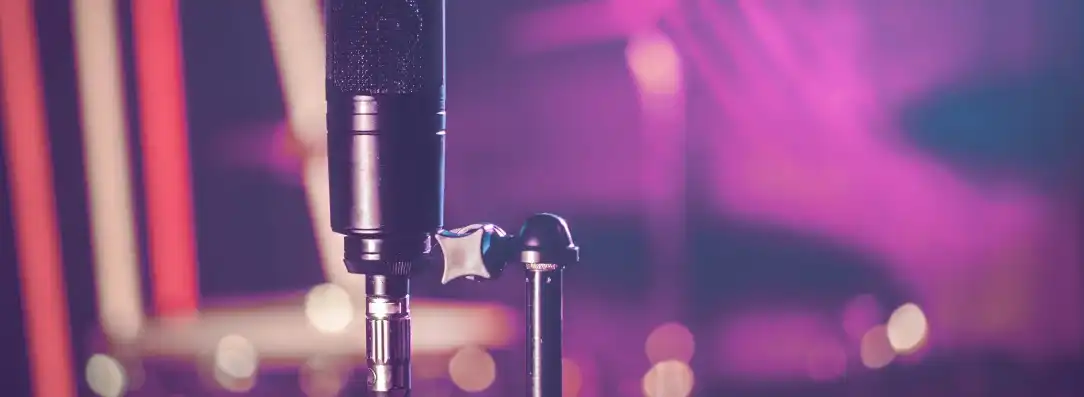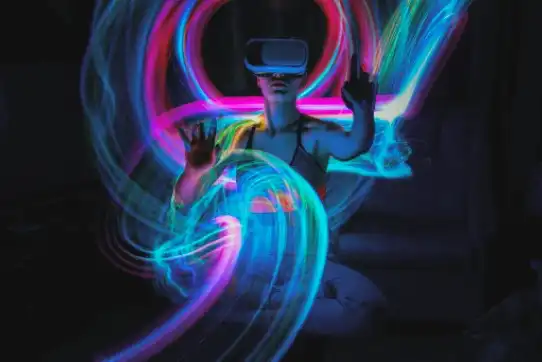How Web3 Is Going To Disrupt The Music Industry
Part 1: what are NFTs and how can artists use them for promotional purposes?
Unless you have been living under a rock for the past year, you have most likely heard the terms ‘Blockchain technology‘ ‘Cryptocurrencies’ and ‘NFTs‘ pop up more and more over the last year. Most musicians and artists are not likely to have immediate association with these terms within their careers up until recently. NFTs seem to have taken the industry by storm and we seem to be poised for the biggest digital revolution since the rise of streaming services. But what are NFTs exactly? How do they work, and how can musicians benefit from them?

What is an NFT, and how does it work?
To put it simply, an NFT is a non-fungible token or key that represents ownership of a unique digital asset. This can be anything, from a song to a photograph, a piece of digital art or a video. As it is fungible it can’t be traded for the same token, because there is only one, but it can be traded or exchanged for something of equal value. Try to imagine NFTs as limited-edition signed vinyl records, with only a limited number of them in existence. NFTs can be bought or traded through a decentralized platform built on blockchain technology. Blockchain is a relatively new system run by many computers around the world. All the computers work together to run a digital ledger system that records virtual transactions, like an open excel sheet. The transactions carried out do not have to be monetary-based, just an exchange of information that cannot be edited and is time-stamped, like an NFT. The benefits of using a decentralized platform that runs on blockchain are that all users have free access to the tokens and are protected from potentially fraudulent transactions.

What do NFTs mean for artists?
So what does this mean for the music industry? Why should you as an artist care about NFTs? NFTs have the potential to enhance the relationship musicians create between them and their fans but also relationships with streaming services, producers, and record labels. NFTs offer artists a way to conduct a direct transaction with their fans without any middlemen. Nowadays most artists rely on digital music distributors or publishing and licensing services. Some examples of these are TuneCore and Spotify but these same artists also depend a lot on record labels, lawyers, producers and many more ways to connect their music with their fans. According to a recent study by Citigroup, artists receive an average of only 12 percent of all profits from the sales or streams of their music. With current streaming models paying artists as little as $0.03 per stream, it is virtually impossible for musicians with a smaller reach to make a living off of streaming services.The best thing about NFTs is that they offer an entirely new stream of revenue for artists and let fans invest directly into the work of an artist. Creating the potential to make a profit. In this blog we will take a closer look at how you can use NFTs for promotional purposes and the way SmartLabel fits in to this new world.
Using NFTs for promotional purposes
For example, let’s take a look at an imaginary scenario with the artist Celine Dion. She is interested in increasing her fan engagement around the world, and thus she creates a limited number of NFTs to be released at the same time as her newest album drop. Each of these NFTs would be a digital token offered on a decentralized platform, and owning these would give fans all kinds of different benefits. In this case an NFT could be a wav file of a special recording of ´My heart will go on´ where she has the giggles´, something quite exclusive.
Owning one of these NFTs could offer fans special privileges, such as access to all her concerts in Europe for five years, full access backstage during her World Tour or access to a special fan club on Discord or Telegram where she shares special content just for her diehard fans. Celine Dion could create a thousand of these NFTs and then ensure that one of every 20 of these NFTs has an extra feature where they can have an online meet and greet with the artist herself. This way fans know that if they acquire one of these NFTs, not only do they have a song and access to special fan privileges, but can potentially get a rare reward.
These NFTs rewards are extra valuable because there are less of them in circulation. As fewer of them exist they are more in demand and therefore worth more. The token holders of Celine Dion NFTs can always choose to transfer the NFTs in the future if they are no longer interested in them. And with a bit of luck they will receive more than what they initially paid for it. A win-win situation because they also make money off of their initial investment from supporting Celine Dion. All proceeds from the NFTs go directly to Celine Dion which is another plus. Sounds great, right?At SmartLabel, we support artists all around the world with this NFT promotion service
Owning one of these NFTs could offer fans special privileges, such as access to all her concerts in Europe for five years, full access backstage during her World Tour or access to a special fan club on Discord or Telegram where she shares special content just for her diehard fans. Celine Dion could create a thousand of these NFTs and then ensure that one of every 20 of these NFTs has an extra feature where they can have an online meet and greet with the artist herself. This way fans know that if they acquire one of these NFTs, not only do they have a song and access to special fan privileges, but can potentially get a rare reward.
These NFTs rewards are extra valuable because there are less of them in circulation. As fewer of them exist they are more in demand and therefore worth more. The token holders of Celine Dion NFTs can always choose to transfer the NFTs in the future if they are no longer interested in them. And with a bit of luck they will receive more than what they initially paid for it. A win-win situation because they also make money off of their initial investment from supporting Celine Dion. All proceeds from the NFTs go directly to Celine Dion which is another plus. Sounds great, right?At SmartLabel, we support artists all around the world with this NFT promotion service

Musicians, fans and NFTs
A lot of electronic artists out there are testing the waters with NFTs. Justin Blau for example, also known as DJ and producer 3LAU, made headlines last year when he sold 33 NFTs to mark the three-year anniversary of his Ultraviolet album for a record-breaking $11.7 million. Each token holder was given different bonuses, including a signed vinyl copy of the album and access to unreleased music.
The highest bidder was even able to collaborate on a song with Blau. This goes to show that what and how much is offered on each NFT is totally up to the artist, making them a great tool to monetise your fans.
The highest bidder was even able to collaborate on a song with Blau. This goes to show that what and how much is offered on each NFT is totally up to the artist, making them a great tool to monetise your fans.
Although NFTs have yet to be perfected for the music industry, it is a technology in motion, and we are creating it. Artists interested in NFTs should research this topic and know about potential risks before diving in. SmartLabel believe NFTs will change the music industry and help upcoming artists make a living off their music. But don’t dump all your savings into NFTs just yet – we need to understand the risks and advantages of this new technology.
By Jonathan Oudekerk